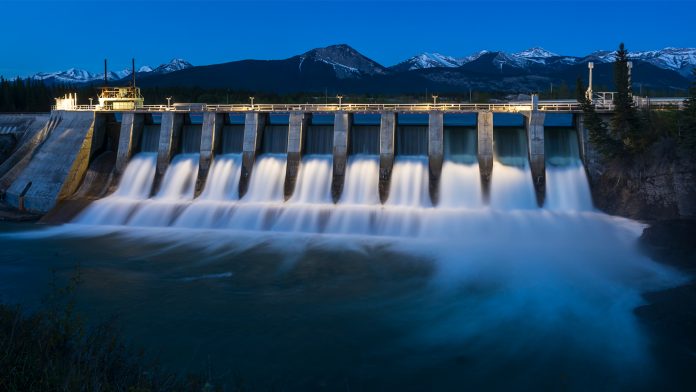Table of Content
- Water Resource Replenishment:
- Agricultural Advantages
- Forest Regeneration
- Replenishing Aquatic Ecosystems
- Mitigating Drought and Desertification
- Hydropower Generation
Heavy rainfall, often viewed as a natural disaster, can actually have several positive impacts on the environment, ecosystems, and human societies. While it may cause temporary disruptions and challenges, heavy rainfall plays a crucial role in maintaining the delicate balance of Earth's ecosystems and contributes to various benefits. In this article, we will explore the positive impact of heavy rainfall, highlighting its importance in nurturing the vitality of our planet.

Water Resource Replenishment:
One of the most significant positive impacts of heavy rainfall is its role in replenishing water resources. Precipitation, in the form of heavy rainfall, fills rivers, lakes, and reservoirs, effectively recharging groundwater tables. Adequate water availability is crucial for human consumption, agriculture, and maintaining the ecological health of rivers and wetlands. Heavy rainfall events help mitigate water scarcity and ensure a sustainable supply of freshwater for various purposes.

Agricultural Advantages
Heavy rainfall is a boon for agricultural activities. Adequate water supply supports crop growth, providing farmers with favorable conditions for cultivation. Rainfall replenishes soil moisture, ensuring sufficient hydration for plants, especially during critical growth stages. Additionally, heavy rainfall can flush out accumulated salts and pollutants from agricultural fields, promoting soil health and fertility. Farmers often rely on timely and abundant rainfall for successful harvests, making heavy rainfall a vital component of agricultural productivity.

Forest Regeneration
Heavy rainfall plays a crucial role in regenerating forests and maintaining biodiversity. Forest ecosystems heavily depend on water availability, and substantial precipitation nourishes both vegetation and the intricate web of life within these ecosystems. Rainfall enables tree growth, promotes seed germination, and rejuvenates forest floors. It also helps prevent forest fires by maintaining higher moisture levels. The positive impact of heavy rainfall in fostering forest growth leads to enhanced carbon sequestration, improved air quality, and the preservation of habitats for countless plant and animal species.
Replenishing Aquatic Ecosystems
Heavy rainfall contributes significantly to the health and vitality of aquatic ecosystems. It refills rivers, streams, and ponds, creating suitable habitats for aquatic life. The increased water flow and depth help maintain adequate oxygen levels, support fish migration, and improve the overall water quality. Moreover, heavy rainfall events often coincide with breeding seasons for many species, providing optimal conditions for reproduction. Consequently, these aquatic ecosystems serve as valuable resources for fishing, tourism, and recreational activities.
Mitigating Drought and Desertification
Regions experiencing extended periods of drought and desertification can benefit greatly from heavy rainfall events. Intense rainfall offers respite by alleviating water scarcity and replenishing arid landscapes. It stimulates plant growth, allowing vegetation to survive and thrive, which, in turn, prevents soil erosion and helps combat desertification. By recharging groundwater supplies and improving moisture levels, heavy rainfall plays a crucial role in mitigating the adverse effects of drought and promoting ecosystem resilience.

Hydropower Generation
Another positive impact of heavy rainfall is its contribution to renewable energy generation through hydropower. Rainfall fills reservoirs and increases the water level in rivers, ensuring a consistent flow for hydropower plants. This clean and sustainable energy source reduces reliance on fossil fuels, minimizes greenhouse gas emissions, and helps combat climate change. Heavy rainfall events are essential in maintaining water levels necessary for uninterrupted hydropower production, ensuring a reliable and eco-friendly energy supply.

While heavy rainfall can be disruptive and challenging, it is crucial to recognize the positive impacts it brings to our planet. From replenishing water resources and supporting agriculture to promoting forest regeneration and mitigating drought, heavy rainfall plays a pivotal role in nurturing Earth's vitality. By understanding and appreciating these positive aspects, we can develop strategies to adapt to heavy rainfall events and harness their benefits while safeguarding ourselves and the environment. Embracing sustainable practices and appreciating the positive impact of heavy rainfall can help us build a resilient future for generations to come.


You must be logged in to post a comment.